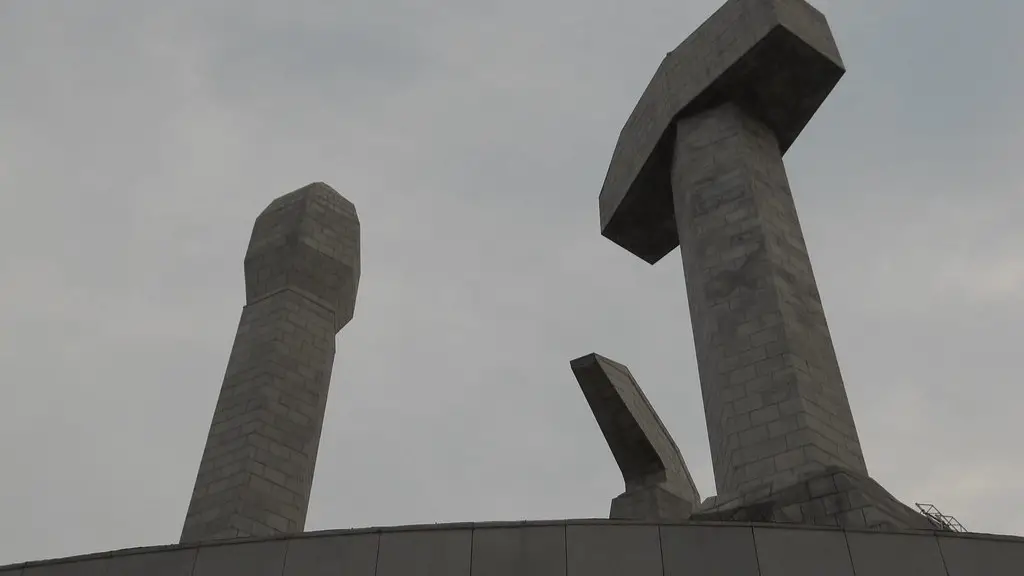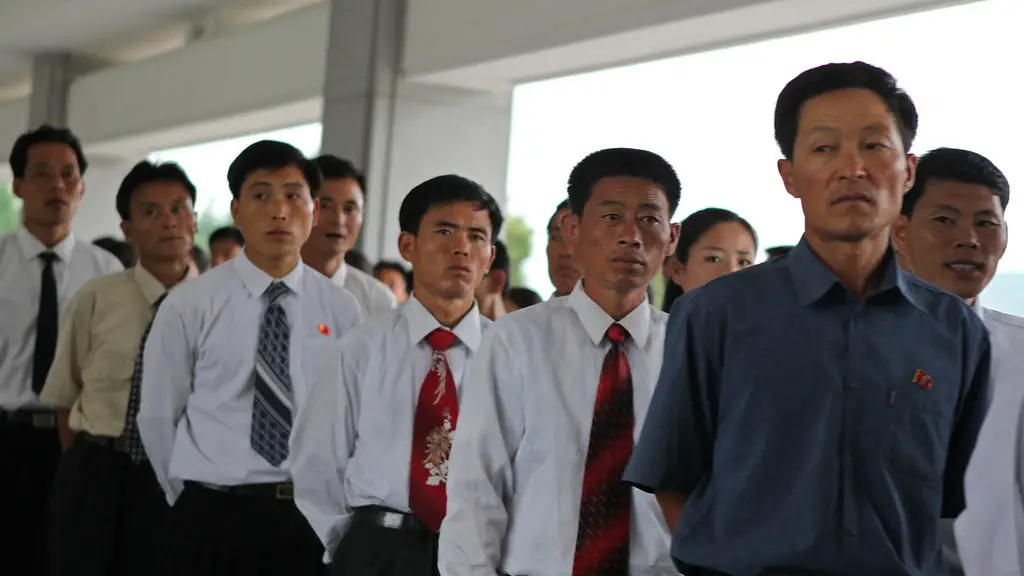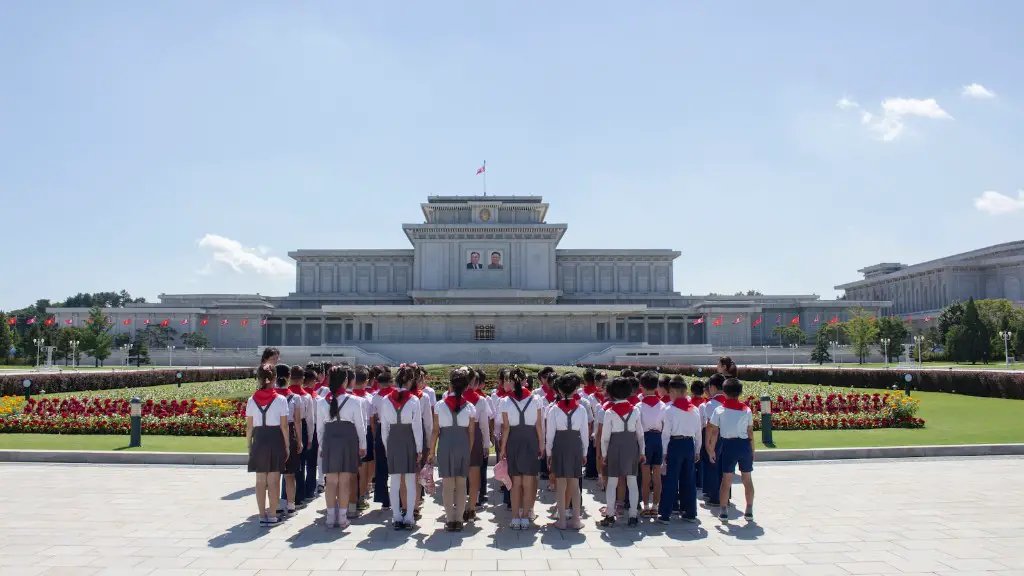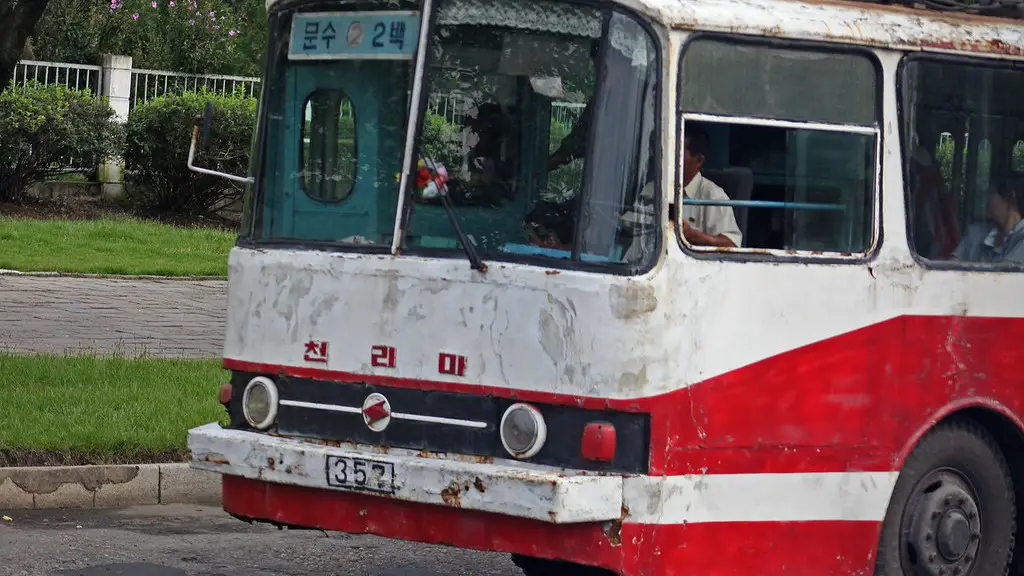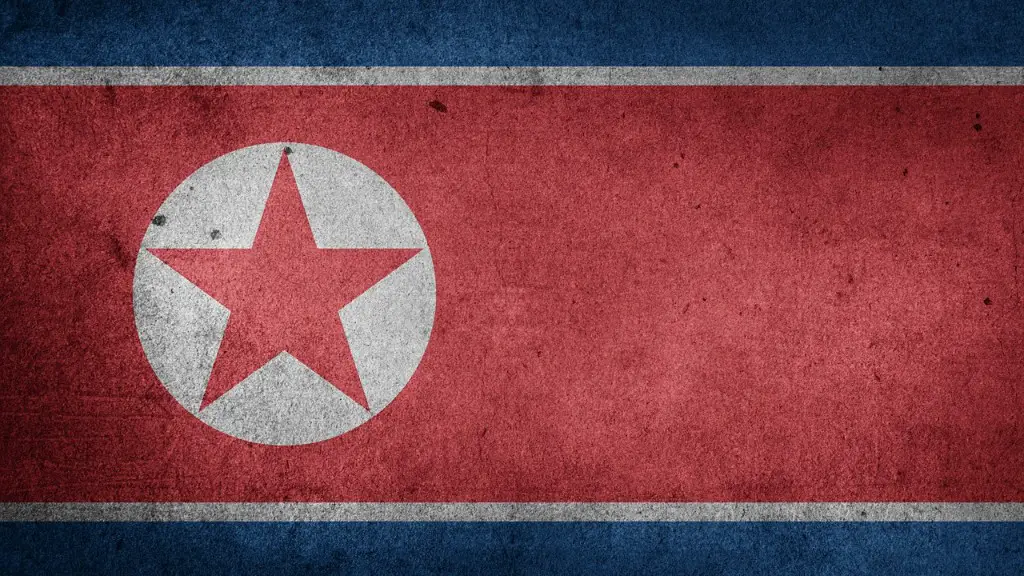Will North Korea ever fall? It is perhaps one of the greatest geopolitical questions of our time. This isolated, heavily militarized nation has been defying global norms and standards since its time of formation while simultaneously creating fear and tension over the potential of nuclear warfare. North Korea has consistently created risks and instabilities through its refusal to comply with United Nations resolutions, and a large part of the international community is concerned that the country and its leader, Kim Jong-un, will not fall any time soon.
In order to understand the probability of North Korea ever falling, it is important to consider the current political, economic, and military power of the country. Although North Korea is a closed economy, it is difficult to gauge how successful the economy is relative to other nations. What is known is that the country heavily relies on foreign aid and Chinese investment for its economic stability, and is insufficiently capable of supporting itself independently. Similarly, North Korea’s military power is surprisingly strong despite its lack of resources, primarily due to its dedication to manpower and quantity of military resources. Combined, these elements have allowed the country to remain largely independent and maintain its existing power structures.
Many experts have suggested that North Korea could potentially collapse if its existing power structure is challenged. It is unclear what could cause the challenge, as its political isolation and hostility have repelled most potential foreign allies. One theory is that if China, as a major investor, suddenly withdraws its financial support, North Korea could be destabilized and unable to maintain its power. Another possible scenario is if the United Nations sanctions preventing trade and access to resources succeed in exerting meaningful financial pressure, putting the country in an unsustainable circumstance.
Yet, the damage required to effectively destabilize North Korea may be too difficult, or too costly, for the international community to permit. Although the United Nations resolutions previously established were designed to further limit the country’s access to resources, the number of resolutions has decreased in recent years due to fears of instigating armed conflict. Similarly, despite some of the calls for action from other nations, little tangible evidence has arisen that would suggest a viable plan to break down North Korea’s existing power structure.
Whilst the probability of North Korea ever falling remains largely unknown, it is most likely the case that such an event is unlikely in the near future. As the current leader of North Korea is the third generation of the same family to be at the helm, the existing power structures have been in place for an extended period of time and are likely to remain unchanged unless a more pressing external circumstance occurs. Whatever world-altering events that may happen, it appears that North Korea is here to stay.
What Would Replace North Korea?
The thought of North Korea’s collapse is one that induces a flurry of speculation and uncertainty to the international community. How will the ongoing power struggle within the Korean peninsula be settled? What will happen to the citizens of North Korea? Will the country be annexed by South Korea or be divvied up between other nearby states?
In the event that North Korea were to collapse and transition to an alternative leadership, it is likely that the United Nations Security Council (UNSC) would be involved in the process. By including members with veto powers, the UNSC would have a say in negotiations and would help facilitate a smooth transition. The most likely result of such a transition would be the redrawing of borders and the reunification of the Korean peninsula. One of the main concerns in this event, however, is the transition of resources ownership and rights, which are often the root of politics and power struggles.
Another potential outcome is that the country could partition itself, with North Korea putting itself under the control and governance of a different foreign power. However, this option has largely been ruled out, as North Korea has been one of the few political entities in the region to maintain its national identity and autonomy since its creation. If the country were to be divided, it is likely that the new partitions would be established along linguistic, cultural, or ethnic lines. Still, it is uncertain how a partitioned North Korea would interact with South Korea or other countries in the region.
Will the U.S. Take Action?
The United States has long been involved in North Korea, primarily through using its position to broker peace negotiations between North and South Korea and other countries in the region. Now, as tensions between North Korea and the United States have grown, there are also discussions regarding economic sanctions from the United States against North Korea. This could be seen as an attempt to challenge the current power imbalance and potentially destabilize the country.
Just recently, President Trump of the United States imposed additional sanctions on North Korea and its leader, Kim Jong-un. Although the effectiveness of these sanctions are yet to be determined, such measures are unlikely to pose a sufficient long-term threat to North Korea’s existing power structure. As the economic sanctions from the United Nations have not had the desired results, it is unlikely that the more limited sanctions from the United States will have any major impact on North Korea.
The more pressing concern, however, is the potential of armed conflict between North Korea and the United States in the near future. This would be a significant game changer, as it could prompt North Korea to use its military resources in a more aggressive manner. For now, however, it appears that the United States is more interested in maintaining diplomatic relations and allowing the situation to unfold naturally.
What Would Happen to North Korea’s Nuclear Arsenal?
The existence of North Korea’s nuclear arsenal is a great source of concern for the international community. Not only does the proliferation of nuclear weapons increase the risk of conflict, but it also increases the chances of a nuclear disaster if a weapon were to be detonated. To ensure that such a scenario does not come to pass, it is likely that the United States and other countries in the region would ensure that any nuclear weapons in North Korea’s possession are dismantled and rendered inert.
The process of dismantling and disposing of North Korea’s nuclear weapons would require a high degree of accuracy, as any mistakes could lead to nuclear catastrophe. For this reason, it is likely that the United Nations Security Council would be involved in the process to ensure that it is carried out in an effective and safe manner. To initiate such proceedings, North Korea would have to agree to comply with the international protocols which would require the country to destroy its weapons in the presence of international inspectors and follow strict guidelines.
Whilst dismantling nuclear weapons is inherently risky, the international community has done it before. During the Cold War, the United States and the Soviet Union were both successful in decreasing their nuclear weapons stockpiles. If North Korea were to be forced to comply, it is likely that a similar program could be put in place to reduce the threat of North Korea’s nuclear arsenal.
What Impact Could North Korea’s Collapse Have?
If North Korea ever falls and transitions to a different power structure, its impact would be felt far beyond the Korean peninsula. The change in power would have wide-reaching implications for regional and global geopolitical dynamics, with some of the effects being more positive than others.
In terms of regional effects, the collapse of North Korea could lead to an easing of tensions between North and South Korea. The reunification of the Korean people after such a long period of division may provide for a great boost to both the South Korean economy and the well-being of its citizens. Similarly, it could lead to the establishment of closer ties with China and other countries in the region, which could in turn foster economic growth and improved diplomatic relations.
On a global scale, the shift in power could prompt further discussions about global security and non-proliferation. Since North Korea has been one of the few holdouts against the general international trend of disarmament and the elimination of nuclear weapons, its potential collapse could be seen as a victory for the international community. It could also be viewed as a lesson in the futility of isolationism that could have important implications for other nations in similar positions. As such, North Korea’s potential transition could have immensely positive outcomes for global peace and security.
Is North Korea’s Collapse Inevitable?
Although the probability of North Korea ever falling remains largely unknown, it is clear that the international community is taking greater steps to limit the power and influence of the country. With increased economic sanctions and international scrutiny, the country is becoming more isolated and the chance of meaningful change is increasing. In the face of external pressure, the reliability of North Korea’s current power structure is likely to be tested.
At the same time, the international community should be aware that the eventual collapse of North Korea may not always lead to a desirable outcome. North Korea has been a relative outlier in the region and represents a unique geopolitical situation that may require special handling. As such, any potential transition should be carefully managed to ensure the safety of both its citizens and the world as a whole.
In conclusion, no one can say for certain if or when North Korea will ever fall. All that is certain is that the power dynamics in the region are changing and further steps will likely be taken in the future to challenge the existing power structure. When this happens, it may lead to the fall of North Korea and a regionwide reshuffling of power, with potentially positive and negative outcomes for both the region and the world.

